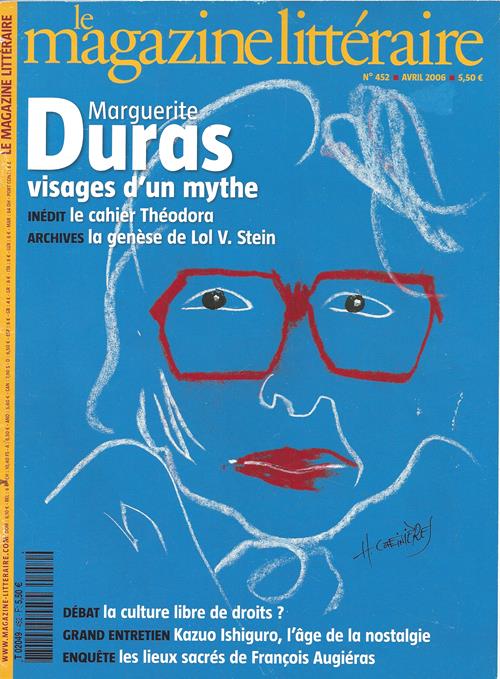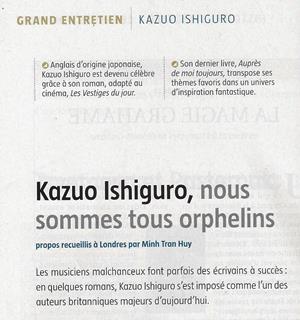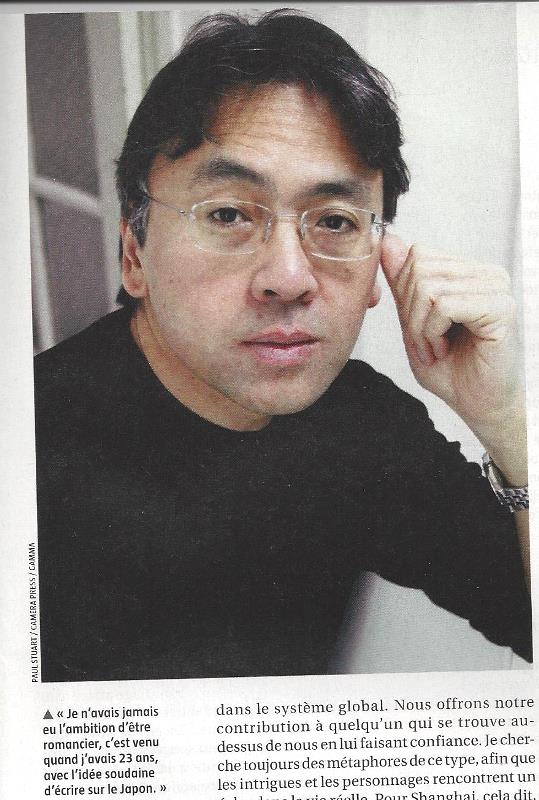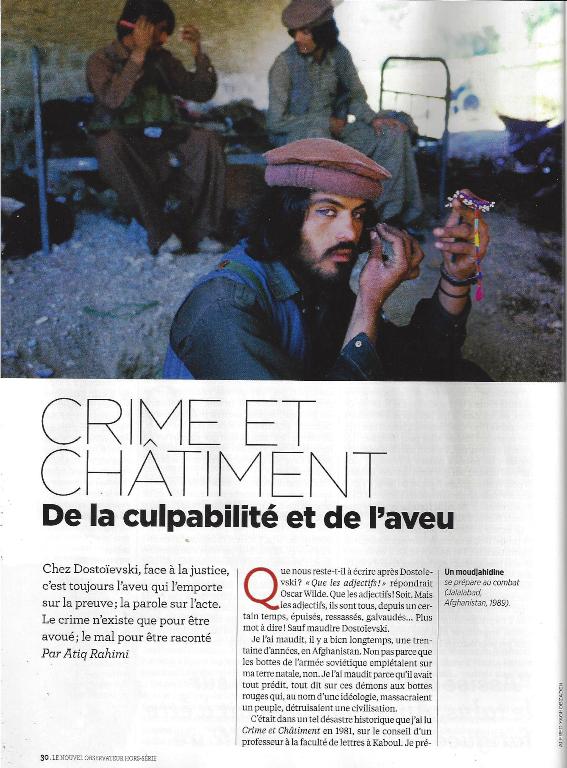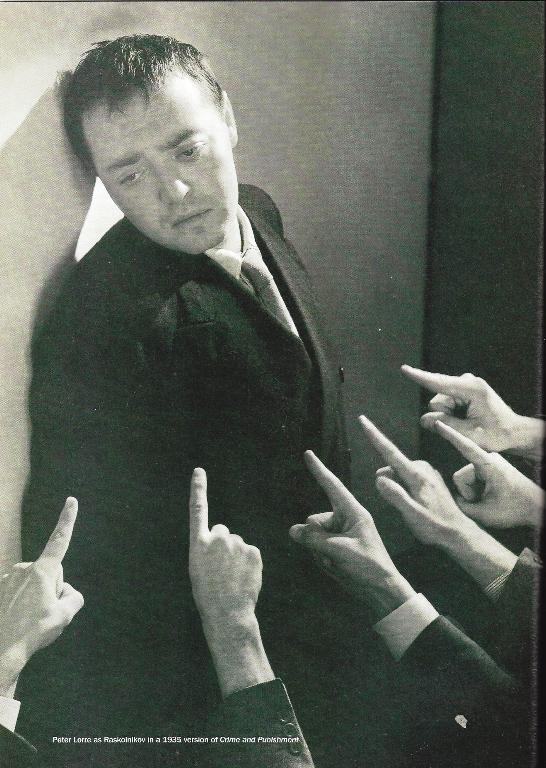|
|
Note: Kiếm ra số báo ML có
bài "đại phỏng vấn" Kazuo Ishiguro, do Trần Minh Huy thực hiện: Tôi
chưa từng có ý làm 1 tiểu thuyết gia, cho tới năm 23 tuổi, bất thình
lình phán 1 phát, mình phải viết về xứ Nhựt Lùn. Bài phỏng vấn tuyệt
lắm. GCC sẽ đi 1 đường chuyển ngữ, để cho thấy, không phải là cứ đeo
kiếng vô - viết bằng tiếng mũi lõ - là có văn chương.
Thành tựu của cuộc
ăn cướp Miền Nam chỉ đẻ ra 1 thứ nhà văn "rửa bướm như rửa rau"!
Kazuo Ishiguro
His first
novel, A Pale View of Hills won the 1982 Winifred Holtby Memorial
Prize. His
second novel, An Artist of the Floating
World won the 1986 Whitbread Prize. Ishiguro received the 1989 Man
Booker prize
for his third novel The Remains of the Day. His fouth novel, The
Unconsoled won
the 1995 Cheltenham Prize.
His novels:
An Artist of the Floating World (1986), When We Were Orphans (2000),
Never Let
Me Go(2005) were all shortlisted for the Man Booker Prize.(less)
Thầy của KI, là Dos
Quotes by Kazuo Ishiguro
“There
was another life that I might have had, but I am having this one.”
― Kazuo Ishiguro
tags: inspirational, missed-chances
2643 likes
like
“Memories,
even your most precious ones, fade surprisingly quickly. But I don’t go
along
with that. The memories I value most, I don’t ever see them fading.”
― Kazuo Ishiguro, Never
Let Me Go
tags: memory
2100 likes
like
“I
keep thinking about this river somewhere, with the water moving really
fast.
And these two people in the water, trying to hold onto each other,
holding on
as hard as they can, but in the end it's just too much. The current's
too
strong. They've got to let go, drift apart. That's how it is with us.
It's a
shame, Kath, because we've loved each other all our lives. But in the
end, we
can't stay together forever.”
― Kazuo Ishiguro, Never
Let Me Go
“There
was another life that I might have had, but I am having this one.”
Note:
Câu này, giống thơ GCC:
Không
phải tiếc cuộc đời đã sống
Mà cuộc đời bỏ lỡ, nhớ hoài
Chúng ta viết cho ai?
hay là
Cái kệ sách giả dụ
Note Bài này, GCC mới kiếm
thấy, nhưng lại không biết ai là tác giả. Mò mãi mới ra: Italo Calvino.
Bài tuyệt hay. Nó giải thích được cái sự tha hóa của đám nhà văn Mít,
chê tiếng Mít, viết bằng tiếng mũi lõ: Đếch có mảnh đất nào an toàn cả.
Tác phẩm, chính nó, là 1 trận địa.
Đám khốn này, biết tỏng ra là đếch ai thèm đọc chúng, trừ đám bạn bè
quanh quẩn cũng mất gốc như chúng.
Tàn Ngày
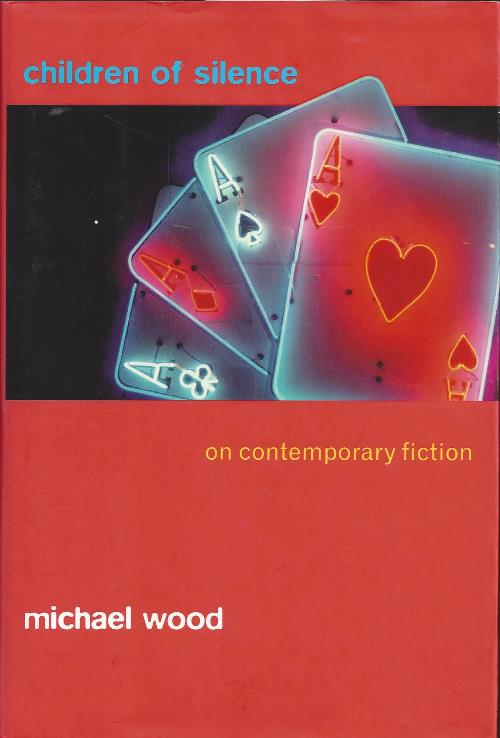
Trong “Những
đứa trẻ của im lặng”, Michael Wood có 1 bài thật “căng”, về Tàn Ngày.
Cách đọc sách của ông, là từ hai bậc đại sư phụ trong giới phê bình,
một, đại
phê bình gia “Trùm” Mác Xít, G. Lukacs, và một, “Trùm” Cơ cấu luận, Ký
hiệu học,
và là người đỡ đầu, phát ngôn viên của trào lưu Tiểu Thuyết Mới ở Tẩy –
còn là vị Thầy
“hụt” của Thầy Kuốc [hụt, theo nghĩa, phịa ra] - Roland Barthes.
Bài này
“kinh” lắm. Hắc búa lắm. Thực sự là vậy. Diễn ngôn của những kẻ khác: The Dicourse of Others.
Tàn Ngày

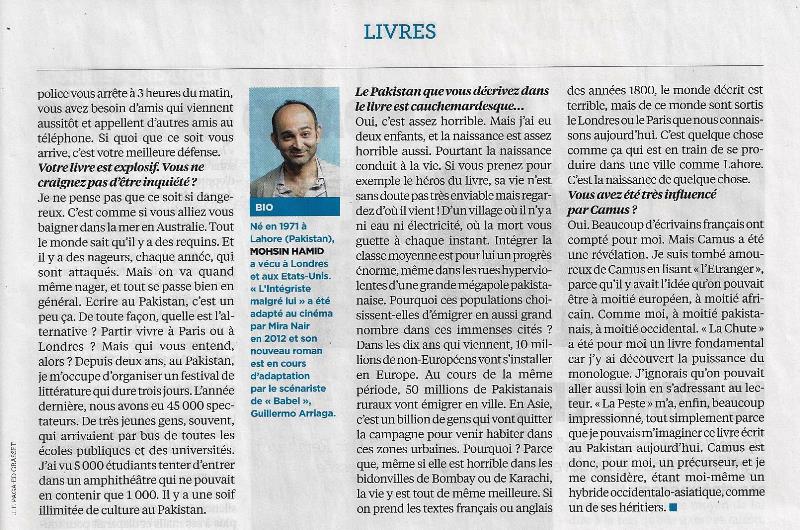
V/v Đeo kiếng vô thì đọc
được chữ: Viết văn bằng tiếng của tụi mũi lõ. Tờ Obs, số 28 Aout & 3 Sept giới
thiệu một anh gốc Pakistan, viết văn bằng tiếng Hồng Mao, nhưng sư phụ
của anh, là Camus. GCC
dịch 1 khúc ở trên, là để tặng lũ Mít, Bắc Kít, đúng hơn, chạy thoát
được cái sân gà vịt ở Hà
Nội, nhờ ăn cướp được Miền Nam cho chúng cơ hội, đừng viết dơ bẩn quá.
Cứ vạch
cái đó ra rửa rửa, rồi viết viết, thì quá tởm!
Ông quá bị ảnh hưởng bởi…
Cà Mâu [Cà Mâu là quê hương của Cô Tư]?
Đúng như thế. Rất nhiều nhà văn Tẩy đáng kể đối với tôi. Nhưng Camus là
1 mặc khải. Tôi mê ông ta, je suis tombé amoureux de Camus, khi đọc “Kẻ
Xa Lạ”, bởi cái ý tưởng, người ta có thể nửa Âu, nửa Phi. Như tôi, nửa
Pakistan, nửa Tây Phương. “Sa Đọa”, đối với tôi, thật cơ bản,
fondamental, bởi là vì tôi khám phá ra sức mạnh, quyền năng, la
puissance, của độc thoại. Tôi không hề biết, trước đó, là người ta có
thể đi xa tới mức như thế, trong cái chuyện lèm bèm với độc giả. “Dịch
Hạch” quá ấn tượng đối với tôi, giản dị bởi cái điều, bây giờ, vào thời
điểm này, tôi có thể tưởng tượng, cuốn tiểu thuyết có thể viết ra ở
Pakistan. Camus, như thế, đối với tôi, là 1 kẻ tiền thân, và tôi tự coi
mình, như 1 con vật lưỡng thê, như 1 trong những kẻ thừa kế của ông ta.
Về Kazuo
Ishiguro: The
master craftsman: 10 things you need to know about Kazuo Ishiguro (Sunday London Times
31-8-14) - Ai
chưa đọc Ishiguro thì nên đọc. Một người Nhật lớn lên bên Anh, viết
tiếng Anh
hay mê hồn!
Note: Thấy dòng trên, trên
trang "Vịt Xì Tốp Đi
Thui", của Thầy THD. Bèn bệ về.
Tks. GCC.
[Không biết có phải do Thầy đọc TV, mà cũng lèm bèm về Kazuo
Ishiguo, viết tiếng Anh hay mê hồn!].
Trùm viết văn: 10 điều bạn cần biết về Ông
Trùm. Trong 10
điều, có 1, theo GCC cực thú, do ông Trùm Amazon, 1 fan của KI, phán:
"Trước khi đọc Tàn Ngày, tớ
không tin là có 1 cuốn tiểu thuyết được coi là tuyệt hảo".
Tuyệt. Khen như thế mới là khen! (1)
2. He might be responsible for Amazon
Jeff Bezos, the founder of
Amazon, is a devoted fan of
Ishiguro’s Booker prize-winning 1989 novel, The Remains of the Day. In a 1998
interview, Bezos proclaimed it the most influential book he has ever
read.
“Before reading it, I didn’t think a perfect novel was possible.”
Bezos’s
attachment to the book is so profound that he is rumored to have
decided to set
up an internet bookstore soon after reading it. Even though Bezos’s
wife denies
the story, the fact remains that Ishiguro enjoys the passionate support
of the
world’s most powerful bookseller.
(1)
Lời khen trên,
không giống như bạn quí của GCC, là "Người Đi Trên Mây", thổi Thầy
Kuốc, nhà phê bình
Mít xuất sắc nhất, không phải thời nào cũng có, thí dụ.
Nó làm độc giả nhớ tới
Borges, và giấc mơ viết DQ, của ông:
For Don Quixote, more than any book ever
written, is literature. (1)
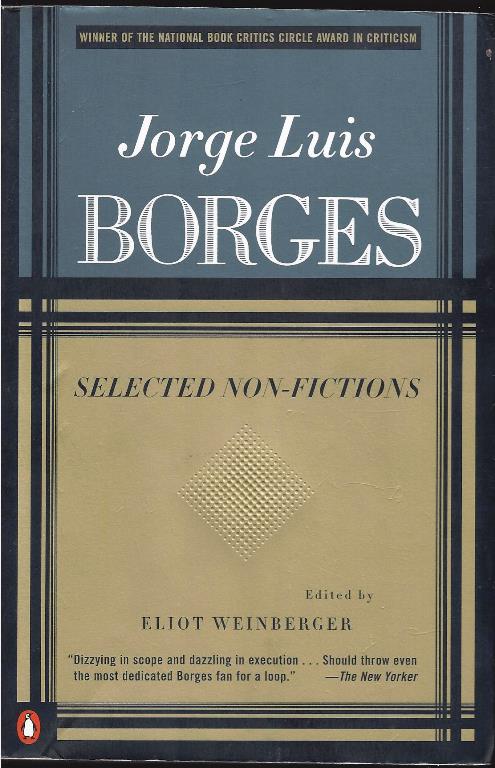
Độc giả TV chắc
còn nhớ, câu chuyện, 1 ông hổ, mê văn chương, và mê 1 văn nhân quá -
thí dụ GCC! - bèn hóa
thân làm người, và làm bạn với vị văn nhân, thực sự là làm thằng bồi,
để hàng ngày nghe văn chương.
Thế rồi, một bữa, ông chủ ghé 1 diễn đàn văn
học, Hạ Vệ, hay Da Mùi gì đó, và bọn này mở tiệc
đãi, thi nhau xổ thơ, văn.
Lúc
đầu thì ông hổ cố chịu, sau chịu không nổi, năn nỉ, thôi đi, tha cho
tôi.
Lũ
kia đâu chịu nghe, càng xổ tiếp.
Thế là ông hổ điên lên, lắc mình 1 phát, biến
thành hổ, quơ chân quạt chết hết, rồi cúi lạy vị văn nhân, bỏ đi!
Tàn Ngày
If Wilson
and Swift may be considered quintessentially English], then Kazuo
Ishiguro [and
Timothy Mo] offer evidence of how the English-language novel is now
enriched
from a diversity of cultures. The former is of Japanese extraction, the
latter
of Chinese, though both were educated in England. Ishiguro's three
novels - A
Pale View of Hills (1982), An Artist of the Floating World (1986) and
The
Remains of the Day (1989) - have all been distinguished by an
exquisite
precision; he is a writer who works scrupulously within self-imposed
limits,
achieving his effects by understatement and the adroit deployment of
his material.
Each of his novels has an unmistakable identity; yet he displays his
virtuosity
in his use of a different narrative voice in each. The Remains of the Day, for
instance, is narrated by an elderly English butler. In his portrayal of
this
character, so different from himself, Ishiguro shows himself a pure
novelist.
The central question which occupies Mr. Stevens, the narrator, is `what
makes a
great butler?'. This may seem an extraordinary question for a young
novelist to
pose at the end of the twentieth century; yet Ishiguro uses it in order
to be
able to ask the far more important question of how a man's life is
justified.
Graceful,
humorous, subtle and enquiring, Ishiguro is a writer who impresses by
his
willingness to submerge his own personality and by his fidelity to his
material. Each of his novels is thoroughly and perfectly composed; the
proportions are always seemly. They acquire a strength and authority
from
Ishiguro's acceptance of physical realities and from the exactness of
his
perceptions.
Allan Massie
Đoạn trên, GCC
trích từ 1 bài viết, nay không làm sao tìm lại được. Nhận xét thần sầu,
về 1
nhà văn mũi tẹt, viết bằng 1 thứ tiếng của tụi mũi lõ, mà tụi lõ chưa
từng vươn
tới tầm cỡ như vậy, thế mới khủng khiếp, thế mới ngả đầu bái phục.
Đâu có phải
cứ viết bằng tiếng của Tẩy mũi lõ, như mấy anh chị Mít, là thành nhà
văn đâu?
Trong
tất cả những thứ VC viết ra, rồi được thế giới gật gù, chỉ có 1 Nỗi
Buồn Chiến
Tranh
của Bảo Ninh.
Đau thế.
Cứ đeo kiếng
vô, là đọc được chữ - cứ viết bằng tiếng mũi lõ, là trở thành văn
chương - hồi nhỏ, đọc Quốc Văn Giáo Khoa Thư, phải đến già,
ra được
Xứ Người, Gấu mới hiểu ra ý nghĩa của ẩn dụ này.
Viết bằng tiếng nước Người, là
một cách biến kít thành vàng ròng!
Nhưng với lũ Bắc Kít, ở Paris, nếu là vàng ròng, thì vưỡn còn mùi chiến
lợi phẩm,
mùi tàn dư Mỹ Ngụy, trong có mùi kít Mẽo!
Lũ này, là cũng xuất phát từ sân nuôi gà vịt Hà Nội. Cái tay NG của đài
Bi Bì Xèo đã từng đi 1 đường về chúng.
Gấu cũng lầm về tay Khờ.
Như lầm về Sến.
Với Sến, là
hình ảnh 1 thiên sứ Mít!
Với bạn
quí… Khờ, là hình ảnh một anh chàng
Rhett Butler, đang đưa em Scarlett O'Hara di tản, nghe mất Miền Nam,
bèn đá cho
em 1 phát, trở về… nhà, tham dự cuộc
chiến,
dù chỉ hưởng tí xái, một, hai ngày, nhưng thà như vậy, suốt đời không
phải đau nỗi đau
đếch có mặt
ở Lò Thiêu, của… Steiner! Nhân vật Kiệt
của TTT, trong Một Chủ Nhật Khác, chẳng
là từ bạn quí Khờ của Gấu mà ra ư: Đang… lưu
vong, nghe mất quê hương, bèn trở về, nói
là do bà vợ đang có bầu, Thuỳ, kêu về, nhưng thực sự là do tiếng gọi
khủng khiếp
của 1 Miền Nam, "bớ người ta, kíu tui với"!
Hà, hà!
Note: Nhân
nhắc tới TTT, tới MCNK, bèn nhớ ra Bếp
Lửa, anh chàng Đại và cuốn Tội
Ác và Hình
Phạt của Dos, cuốn sách gối đầu giuờng trước khi bỏ ra ngoài ấy
- tức ra bưng,
lên rừng, theo VC - của anh ta. Cuốn này, được cả hai tờ Obs
và Time chọn, 1 trong
những tuyệt tác của nhân loại.
Tội Ác và
Hình Phạt
Ở Dos, trước
công lý, luôn luôn lời thú tội vượt chứng cớ, lời nói vượt hành
động. Tội
ác hiện hữu là để thú ra, cái ác, là để kể ra.
GCC tin rằng,
sau này, sẽ có 1 cuốn tiểu thuyết, của 1 tên VC Bắc Kít, thú tội, về
Tội Ác làm thịt Miền
Nam!
Phải là giả
tưởng mới OK.
Hiện thực chỉ là kít, thí
dụ, Đêm
giữa ban ngày, Bên thắng nhục.
Cũng thú tội đấy, nhưng đồ dởm không à!
Bằng lời dối
trá, ta nói ra sự thực, là vậy!
Hà, hà!
Atiq Rahimi
là tác giả Hòn Đá Nhẫn Nhục, Syngué sabour, Pierre de
Patience, giải
Goncourt 2008, đã chuyển thành phim. Ông
còn là tác giả cuốn Trời đánh ông đi, hỡi
Dos, Maudit soit Dos, 2011
Atiq Rahimi: "Écrire dans
une autre langue est un plaisir"
Viết bằng một ngôn ngữ khác là một niềm vui
Ông
mê Tây, mê Đầm từ thuở nào?
Vào năm 14 tuổi tôi khám phá ra Những người khốn khổ, của Hugo, qua
bản dịch tiếng Ba Tư. Tại Trung tâm văn hóa Tây, tôi khám phá ra
Đợt Sóng Mới, Jean-Luc Godard, Hisroshima tình tôi,
và những cuốn phim của Claude Sautet mà tôi thật mê ý nghĩa nhân bản ở
trong đó.
Ở
xứ Afghanistan CS đó mà cũng có thể tiếp cận văn hóa Tây sao?
Đúng như vậy, mặc dù khủng bố, mặc dù kiểm duyệt. Ở
chuyên khoa đại học, tôi trình bầy một đề tài về Camus, và được Thành
Đoàn hỏi thăm sức khoẻ, “Cấm không được nói về đám trí thức trưởng giả”.
Viết
văn bằng tiếng Tây,về nỗi đau và sự bất bình, nổi loạn, muốn “làm giặc”
của một đàn bà ngồi bên cái thân hình mê man bất động của người chồng,
một câu chuyện xẩy ra ở Afghanistan hay một nơi chốn nào đó…
-Có thể là do đề tài của cuốn truyện. Tiếng mẹ đẻ là
thứ tiếng người ta học sự cấm đoán, điều cấm kỵ. Để nói về một thể xác
người nữ, chắc chắn là phải sử dụng thứ ngôn ngữ thứ nhì, ngôn ngữ của
sự thừa nhận. Viết bằng tiếng Pháp cho phép tôi thực sự xâm nhập vào
bên trong những nhân vật, và nói về thân xác. Viết bằng một ngôn ngữ
khác thì là một niềm vui thích, giống như làm tình. (1)
Rodion R. Raskolnikov
Origin:
Fyodor Dostoyevsky's 1866 novel, Crime
and Punishment
From Dante's
Inferno, where hell seems a good deal
more interesting than heaven, to Milton's Paradise
Lost, where Satan gets all the best lines, to Shakespeare's Othello, where
Iago's intrigues are more compelling than Othello's virtues, writers
have
learned fiction's dark secret: the allure of evil trumps the banality
of good.
Yet in Fyodor Dostoyevsky's Crime and
Punishment, the author passes rapidly over his main character's
evil deeds-the
pointless murders of an innocent old woman and her half-sister-to
explore their
psychological consequences.
Dostoyevsky understood punishment not as a
concept
but as bitterly lived experience. A parlor radical in his youth, he was
arrested, along with dozens of utopian associates who questioned the
regime of Czar
Nicholas I, and put through a mind-bending form of psychological
torture: he
was convicted of treason, sentenced to death, blindfolded and put in
front of a
firing squad-only to be given a reprieve at the last moment and
sentenced to
four years of exile in a Siberian prison camp.
The author's years in
chains
deepened and darkened his view of the human condition and inspired his
creation
of Raskolnikov, the impoverished former student whose love of
idealistic
concepts outpaces his love for the messy realities of human life and
leads him
to justify his murders as an expression of his self-declared
superiority over
the common man. In Raskolnikov, Dostoyevsky traced the chilling
trajectory of
the sort of evil that begins with grandiose visions of the superhuman,
only to
end in the death camps of Hitler's Germany, the gulag of Stalin's
Russia and
the horrors of the Great Cultural Revolution of Mao's China. The guilty
young
man is the dark prophet of the 20th century's false gods.
Time: The
100 most influential people who never lived, 100 người ảnh hưởng nhất
chưa hề sống.
Từ Hỏa Ngục
của Dante, nơi địa ngục xem ra
bảnh hơn nhiều so với thiên đường, tới Thiên
Đàng Đã Mất của Milton, nơi quỉ Satan được tác giả dành cho những
dòng thật
là tuyệt vời, tới Othello, nơi những
âu mưu của Iago mới thần sầu làm sao, so với thứ đạo hạnh hạng bét của
Othello,
những nhà văn biết, học được, cái bí ẩn đen tối của giả tưởng: cái dáng
dấp của
cái ác phong nhã, đánh bại cái tầm phào, cù lần của cái tốt, và hơn thế
nữa: nó
là hồi chuông báo tử của cái thiện!
Tuy nhiên,
trong Tội Ác và Hình Phạt của Dos,
tác giả đi 1 đường thoáng qua, về tội ác, và dành cả cuốn sách của mình
để khai
triển hậu quả của nó.
Ông biết về
hình phạt không phải như khái niệm mà là 1 kinh nghiệm cay đắng đã từng
trải
qua….
Bà cảm thấy thế nào khi sống
tại nước Pháp
hiện nay?
Tôi gần như luôn luôn cảm thấy
mình sống
trong tình trạng lưu vong. Tôi tin rằng mặc dù sống ở Pháp đã lâu vậy
mà tôi
chưa bao giờ nói: đây là xứ sở của tôi. Nhưng tôi cũng không nói Việt Nam là
xứ sở của
tôi. Tôi coi tiếng Pháp là tình yêu sâu đậm của mình. Đó là cái neo độc
nhất
cắm vào thực tại mà tôi luôn thấy, thật hung bạo, Tôi rất lo ngại về sự
bùng
phát của một thứ chủ nghĩa quốc gia dữ dằn ở Âu Châu. Tôi có cảm tưởng
Âu Châu
ngày càng trở nên lạnh nhạt, và càng ngày càng bớt bao dung. Có lẽ
chúng ta
đang ở trong một thời hòa bình chỉ ở ngoài mặt, có vẻ như hòa bình,
những cuộc
xung đột ngầm chỉ chờ dịp để bùng nổ, tôi sống trong sợ hãi một cú bộc
phát
lớn.
Trong Cronos, bà đưa ra một lời
kêu gọi,
về một sự phản kháng. Phản kháng như thế nào, theo một hình thức nào,
vào lúc
này, theo bà?
Đó là thứ tình cảm bực tức,
muốn làm một
cái gì đó, muốn nổi loạn, khi tôi theo dõi những biến động, Đôi khi tôi
cảm
thấy gần như ở trong tình trạng bị chúng trấn áp đến nghẹt thở. Tới mức
có lúc
tôi ngưng không đọc báo hàng ngày, không nghe tin tức trên đài nữa. Như
nữ nhân
vật Cronos, tôi thỉnh thoảng ở trong tình trạng cảm thấy mình bị cự
tuyệt, bị
sự chối từ cám dỗ…. Như nữ nhân vật này, tôi chỉ có thể chiến đấu bằng
ngòi bút.
Có thể 1 ngày nào đó những biến động bắt buộc tôi phải hành động khác
đi. Nhưng
vào lúc này, trong xã hội mà tôi sống trong đó, khí giới độc nhất của
tôi là viết.
Dù có thể chẳng được hồi đáp
Tôi luôn viết với thứ tình cảm
là tôi có
thể giảng đạo ở giữa sa mạc. Nhưng điều đó không đánh gục tôi. Ngược
lại. Một cách
nào đó, vậy mà lại hay. Đừng bao giờ cảm thấy mình viết ra là được chấp
nhận. Nếu
không bạn sẽ bị ru ngủ bởi sự hài lòng, thoải mái. Bằng mọi cách, cố mà
đừng để
xẩy ra tình trạng tự hoang phế, hay thương thân trách phận. Tình cảm
hài lòng,
và oán hận là hai tảng đá ngầm lớn mà tôi cố gắng tránh né.
Những cuốn sách của bà hay nói tới đề tài
bị bỏ bùa…
Đề tài này luôn ám ảnh tôi. Nó
đầy rẫy ở
trong những tiểu thuyết của Henry James, trong có những phụ nữ bị mồi
chài bởi
những tên sở khanh. Văn chương tuyệt vời nhất là khi nó mê hoặc, quyến
rũ. Tôi
mê những nhân vật giống như là một cái mồi, sẵn sàng phơi mình ra để mà
được… làm
thịt. Bản thân tôi, cũng đã từng bị mê hoặc, hết còn chủ động
được,
trước một vài
người, trong đời tôi, và tôi luôn quan tâm tới điều này.
*
Đây là
đề tài ‘ban phát’, thay vì ‘giải phóng’ bà 'Thấm
Vân Thấm Dần Thấm Tới Đất' [mô phỏng cái tít “Mưa không ướt đất” của 1
nữ văn sĩ
nổi tiếng trước 1975 ở Miền Nam] từng đề cập.
Và một
trong những tiểu thuyết thần sầu của Henry James mà Linda Lê nhắc tới
ở đây, là Washington
Square.
Cuốn này đã
được quay thành phim, với nhân
vật thần sầu, Monty Cliff, đóng vai anh chàng sở khanh đào mỏ.
Nhân
trong
nước đang ì xèo về phim Cánh Đồng
Bất Tận chuyển thể từ tiểu thuyết của
Nguyễn
Ngọc Tư, TV bèn ‘lệch pha’qua nhân vật đàng điếm sở khanh Monty Cliff,
một trong
những kép độc được mấy em gái thời Gấu mới lớn mê mẩn, không chỉ anh
ta, mà còn, nào là Elvis
Presley,
Gregory Peck, Clark Gable...
Tên nào
Gấu cũng thù, do hồi đó Gấu
mê một
em, và
thần tượng của em là những đấng trên!
Gấu Cái
cũng cực mê Elvis Presley, từng trốn học đi coi phim có anh ta
thủ vai chính! (1)
Cuốn tiểu
thuyết truyền kỳ “Tàn Ngày” của Kazuo Ishiguoro, quái làm sao, ở cái xứ
Tây
Phương, vậy mà tuyệt bản. Nhưng tháng này, nó tái xuất hiện trên chốn
giang hồ,
và Salman Rushdie bèn đi 1 đường chào mừng.
Trong “Quê Hương Tưởng
Tượng”, ông
đã viết về nó.
Lạ là, “Tàn
Ngày” là cuốn tiểu thuyết, bản dịch tiếng Anh, đầu tiên, Gấu đọc, khi
ra được hải
ngoại, nghĩa là tới được xứ xở thứ ba, là Canada, quê hương thứ nhì của
GCC.
UNHCR có thuật
ngữ, Đệ Nhất, Đệ Nhị và Đệ Tam Quốc Gia, để chỉ cuộc đời 1 tên tị nạn.
Đệ Nhất,
là quê hương mà nó phải bỏ chạy, Đệ Nhị là xứ tạm dung, chờ Đệ Tam
nhận, cho tái
định cư.
Khi viết cho
talawas, bài đầu tiên làm quen, "Dịch là cướp", GCC chỉ nghĩ theo
chiều, dịch từ
tiếng Anh của tiếng Việt. Không hề nghĩ đến chiều dịch từ tiếng “da
màu” qua tiếng
Anh.
Trong nước gọi là giới thiệu dòng văn chương Mít, với thế giới.
"Tàn Ngày", không phải như vậy, theo nghĩa, chính cái xứ sở nói tiếng
Anh cần nó. Trong
tiếng Anh, có cái gì thiếu, và chính "Tàn Ngày" mang lại cho nó.
Khủng đến mức như
thế.
Trong khi đám
Mít ở Tây viết tiếng Tây, theo Gấu, chỉ làm dơ, làm bửn, làm nhục tiếng
Tây!
Đó là sự thực.
Không tin, bạn cứ thử đọc lũ này, là thấy rõ.
TV sẽ giới
thiệu cả hai bài viết của Salman Rushdie.
The man who
wrote The Remains of the Day in
the pitch-perfect voice of an English butler is
himself very polite. After greeting me at the door of his home in
London’s
Golders Green, he immediately offered to make me tea, though to judge
from his
lack of assurance over the choice in his cupboard he is not a regular
four P.M.
Assam drinker. When I arrived for our second visit, the tea things were
already
laid out in the informal den. He patiently began recounting the details
of his
life, always with an amused tolerance for his younger self, especially
the
guitar-playing hippie who wrote his college essays using disembodied
phrases
separated by full stops. “This was encouraged by professors,” he
recalled.
“Apart from one very conservative lecturer from Africa. But he was very
polite.
He would say, Mr. Ishiguro, there is a problem about your style. If you
reproduced this on the examination, I would have to give you a
less-than-satisfactory grade.”
Đoạn mở ra
cuộc nói chuyện, và sau đó, là bài phỏng vấn, trên đây, của tờ The
Paris
Review, là đã khiến chúng ta tò mò rồi, “Mr. Ishiguro, có một vấn đề
trong văn
phong của ông”.
Liệu có tên
Tẩy chính gốc nào, tìm ra “vấn đề trong văn phong, biết bằng tiếng Tẩy”
của lũ
Mít, chọn Paris làm nhà của chúng?
Một trong những
tác giả hải ngoại đầu tiên mà Gấu đọc, và tò mò về văn phong là Đỗ KH,
khi đọc
“Cây Gậy Làm Mưa” của anh. Gấu đã viết về vụ này, liền sau đó, trong
bài viết về
ông anh nhà thơ:
Bao nhiêu
năm nhìn lại, tôi nhìn ra thất bại của bản thân, khi tìm cách thay đổi
văn mạch
cũ của văn chương Việt Nam. Sự thất bại không phải vì dòng văn chương
mới mẻ đó
không thích hợp với quan niệm thưởng ngoạn của đa số độc giả, mà là:
Tôi quá bị
ám ảnh bởi vấn đề kỹ thuật. Một cách nào đó, tôi đã không lãnh hội được
bài học
của Kafka, khi ông cho rằng, kỹ thuật chính là hữu thể (être) của văn
chương.
Rõ ràng, câu văn bị kỹ thuật non nớt, sự vụng về, tham vọng làm mới văn
chương... tàn phá, trở thành vụn nát.
Nhưng lối viết đó không phải là
một thất
bại. Theo tôi, trong cuốn "Cây gậy làm mưa", Đỗ KH. cũng đã thử nghiệm
một lối viết mới "na ná" như vậy, và hơn thế nữa, tác giả đưa luôn
những
mạch văn "ngoại lai", những ngôn ngữ " quốc tế"... vào
trong văn mạch Việt Nam. (1)
Tay này, Đỗ KH, Đỗ Khiêm, sau
này, hỏng, cực hỏng. Thất bại, trong toan tính làm mới tiếng Mít, có
thể, anh
quay qua viết văn bằng tiếng Tẩy, 1 thứ “ký, kiếc”, gì đó, cực nhảm,
theo Gấu.
Cũng 1 thứ lạc
loài, tuy không ở Paris!
[Sẽ viết rõ ra thêm, sau, sau khi giới thiệu
cách viết
của Naipaul. NQT]
V/v Đỗ KH.
Gấu nhớ đọc trên net, có 1
tay nào đó, hỏi Lê Đạt, về thơ hải ngoại, và nhắc tới
thơ Đỗ Kh. Lê Đạt phán, nhớ đại khái, tay này mà thơ cái con
khỉ gì - ngôn
ngữ của GCC - một tay viết "ký", đúng hơn.
Nhận xét cùa Lê Đạt đúng chỉ có 1 nửa, như 1 nửa... sự thực.
Thơ Đỗ Kh, nếu hỏng, là
hỏng theo nghĩa chung của thơ Mít, một thứ thơ
kể lể, cũng 1 cách "tự sự", narative, hay được đám hải ngoại sử dụng,
khi ngồi
bên ly cà phê, nhớ bạn quí...
Thơ Raymond Carver cũng bị
1 số
đấng phê
bình coi thuộc dạng này, nhưng không đúng. Bởi là vì toàn thể 1 bài thơ
của Raymond
Carver, sau những dòng kể lể, thể nào cũng toát ra 1 cái gì đó, mắc mớ
đến nỗi
sầu đời của ông.
Hoặc 1 đốn ngộ về kiếp người.
Theo GCC, 1 trong những
người đọc ra thơ của RC, là
Czeslaw Milosz.
Nhưng ký của Đỗ Kh mới cực
hỏng. Cái hỏng của nó, theo GCC, là do trước
đó, ký
của Mít, hỏng, theo chiều thuận, thí dụ, thì bây giờ, hỏng, theo chiều
ngược hẳn
lại.
Trước, ký, tiểu thuyết, truyện ngắn, bất cứ cái đéo gì viết ra, là
phải nhắm
tới Đạo Lớn của… VC.
Sau đó, ngược hẳn
lại,
chỉ nói tới cái tôi, 1 cái tôi đầy sex, đầy trụy lạc, đầy hưởng thụ,
đầy nhơ bửn. (1)
NQT
Thơ RC rất đỗi thê lương,
và nỗi cô đơn đến với chúng ta, rất đỗi bất ngờ. Trong thơ ông có nỗi
buồn cháy da cháy thịt, nhưng không phải là do mất 1 người thân, thí dụ
như bài sau đây, GCC thật mê.
Chiều tối
Tôi câu cá 1 mình
vào buổi chiều tối mùa thu tiều tụy đó,
Màn đêm cứ thế mò ra.
Cảm thấy,
mất mát ơi là mất mát
và rồi,
vui ơi là vui,
khi tóm được một chú cá hồi bạc,
mời chú lên thuyền
nhúng 1 cái lưới bên dưới chú.
Trái tim bí mật!
Khi tôi nhìn xuống làn nước xao động,
nhìn lên đường viền đen đen của rặng núi
phiá sau thành phố,
chẳng thấy gợi lên một điều gì,
và rồi
tôi mới đau đớn làm sao,
giả như sự chờ mong dài này,
lại trở lại một lần nữa,
trước khi tôi chết.
Xa cách mọi chuyện.
L'AUTRE VIE
Et maintenant l'autre vie.
Celle où
on ne fera pas d'erreurs.
Lou
LIPSITZ.
Cõi Khác
Nào, bây giờ là cõi khác
Cõi đếch có lầm lẫn
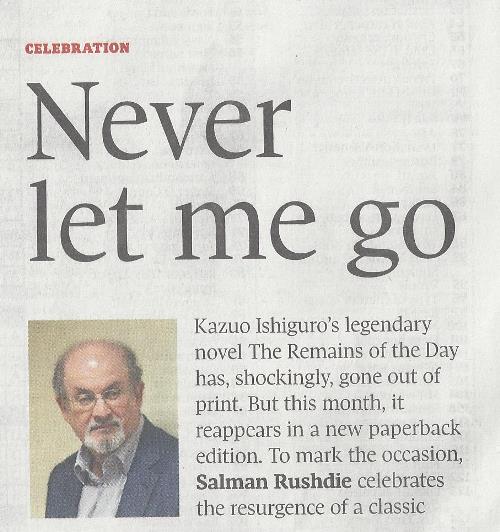
Tàn Ngày tuyệt
bản, được tái bản, Rushdie đi 1 đường chào mừng, trên tờ báo ngày Globe
and
Mail, trích từ lời giới thiệu của R. nhân cuốn sách tái xuất
hiện trên
chốn
giang hồ, một tác phẩm cổ điển
Cuốn này GCC
đã từng giới thiệu, ngay từ ngày mới ra hải ngoại, trên 1 đài TV của
Toronto,
trong 1 chương trình chừng 15 phút của Mít.
Tếu thế.
Nói chuyện
cam chịu lịch sử, và nổi tiếng nhờ nó, bảnh nhất, theo Gấu, là nhà văn
Anh gốc
Nhật, viết văn bằng tiếng Anh 'hách hơn Ăng lê', Kazuo Ishiguro, tác
giả “Tàn
Ngày”, được Booker Prize. Ông thuộc trào lưu những nhà văn trẻ bảnh của
Anh, gồm
Martin Amis, Salman Rushdie… Trên số báo Le Magazine Littéraire, April
2006, đặc biệt về 'em' Duras, cô đầm ở xứ An Nam Mít, có bài phỏng vần
ông, do
Trần Minh Huy thực hiện, ‘K.I., thời của hoài nhớ’, ‘K.I, chúng ta là
những đứa
trẻ mồ côi’...
Khi được hỏi,
sự thiếu vắng nổi loạn thật là rõ ràng trong tất cả các tác phẩm của
ông, K.I.
trả lời: "Đúng như thế, những nhân
vật như Stevens trong Tàn Ngày, họ chấp nhận những gì đời đem đến cho
họ, và, bằng
mọi cách, đóng trọn vai trò cam chịu lịch sử, thay vì nổi loạn, bỏ
chạy… và cố
tìm trong đó, cái gọi là nhân phẩm, chẳng bao giờ tra hỏi chế độ."
Cái gọi là
nhân phẩm, bật ra từ Tàn Ngày, và là
chủ đề của cuốn tiểu thuyết đưa ông đài danh vọng, và đã được quay
thành phim…
"Tôi [K.I. muốn chứng minh sự can đảm của Stevens, nhân phẩm của anh
ta,
khi đối mặt với cái điều, là, người ta đã làm hỏng đời của anh ta”.
Rushdie đọc Tàn Ngày, khác, cái sự thất bại lớn lao
nhất của Stevens, là hậu quả của niềm tin sâu thẳm của ông ta - rằng
chủ của
ông, sư phụ của ông, his master, làm việc cho điều tốt của nhân loại.
Đọc,
“lệch
pha” đi, thì nó ra cái thất bại lớn lao nhất của xứ Mít:
Chúng cứ nghĩ đất nước,
độc lập thống nhất, qui về 1 mối, là số 1, là tốt nhất cho… Mít!
Celebration
Never Let Me Go
I was very
consciously trying to write for an international audience," Kazuo
Ishiguro
says of “The Remains of the Day” in his Paris Review interview. "One of
the ways I thought I could do this was to take a myth of England that
was known
internationally - in this case, the English butler."
"Jeeves
was a big influence." This is a necessary genuflection. No literary
butler
can ever quite escape the gravitational field of Wodehouse's shimmering
Reginald, gentleman's gentleman par excellence, savior, so often, of
Bertie Wooster's
imperiled bacon. But, even in the Wodehousian canon, Jeeves does not
stand
alone. Behind him can be seen the rather more louche figure of the Earl
of
Emsworth's man, Sebastian Beach, enjoying a quiet tipple in the
butler's pantry
at Blandings Castle. And other butlers - Meadowes, Maple, Mulready,
Purvis -
float in and out of Wodehouse's world, not all of them pillars of
probity. The
English butler, the shadow that speaks, is, like all good myths,
multiple and contradictory.
One can't help feeling that Gordon Jackson's portrayal of the stoic
Hudson in
the 1970S TV series Upstairs, Downstairs
may have been as important to
Ishiguro as Jeeves: the butler as liminal figure, standing on the
border
between the worlds of "Upstairs" and "Downstairs,"
"Mr. Hudson" to the servants, plain "Hudson" to the gilded
creatures he serves.
Now that the
popularity of another television series, Downton Abbey, has introduced
a new
generation to the bizarreries of the English class system, Ishiguro's
powerful,
understated entry into that lost time to make, as he says, a portrait
of a
"wasted life," provides a salutary, disenchanted counterpoint to the
less sceptical methods of Julian Fellowes's TV drama. The
Remains of the Day, in its quiet, almost stealthy way,
demolishes the value system of the whole upstairs-downstairs
world.
(It should
be said that Ishiguro's butler is in his way as complete a fiction as
Jeeves.
Just as Wodehouse made immortal a world that never existed except in
his
imagination, so also Ishiguro projects his imagination into a poorly
documented
zone. "I was surprised to find," he says, "how little there was
about servants written by servants, given that a sizable proportion of
people
in this country were employed in service right up until the Second
World War.
It was amazing that so few of them had thought their lives worth
writing about.
So most of the stuff in The Remains of the
Day ... was made up.")
The surface of
The Remains of the Day is almost perfectly still. Stevens, a butler
well past
his prime, is on a week's motoring holiday in the West Country. He
tootles
around, taking in the sights and encountering a series of
green-and-pleasant
country folk who seem to have escaped from one of those English films
of the
1950s in which the lower orders doff their caps and behave with respect
towards
a gent with properly creased trousers and flattened vowels. It is, in
fact,
July 1956 -the month in which Nasser's nationalization of the Suez
Canal
triggered the Suez Crisis - but such contemporaneities barely impinge
upon the
text. (Ishiguro's first novel, A Pale View
of Hills, was set in post-war Nagasaki but hardly mentioned the
Bomb. The
Remains of the Day ignores Suez, even though that debacle marked the
end of the
kind of Britain whose passing is a central subject of the novel.)
Nothing much
happens. The high point of Mr. Stevens's little outing is his visit to
Miss
Kenton, the former housekeeper at Darlington Hall, the great house to
which
Stevens is still attached as "part of the package," even though
ownership has passed from Lord Darlington to a jovial American named
Farraday
who has a disconcerting tendency to banter. Stevens
hopes to persuade Miss Kenton to return to the Hall. His hopes come to
nothing.
He makes his way home. Tiny events; but why, then, is the aging
manservant to
be found, near the end of his holiday, weeping before a complete
stranger on
the pier at Weymouth? Why, when the stranger tells him that he ought to
put his
feet up and enjoy the evening of his life, is it so hard for Stevens to
accept
such sensible, if banal, advice? What has blighted the remains of his
day?
Just below
the understatement of the novel's. surface is a turbulence as immense
as it is
slow; for The Remains of the Day is in fact a brilliant subversion of
the
fictional modes from which it seems at first to descend. Death, change,
pain
and evil invade the innocent Wodehouse world. (In Wodehouse, even the
Oswald
Mosley-like Roderick Spade of the Black Shorts movement, as close to an
evil
character as that author ever created, is rendered comically pathetic
by
"swanking about," as Bertie says, "in footer bags.") The
time-hallowed bonds between master and servant, and the codes by which
both
live, are no longer dependable absolutes but rather sources of ruinous
self-deceptions; even the happy yokels Stevens meets on his travels
turn out to
stand for the post-war values of democracy and individual and
collective rights
which have turned Stevens and his kind into tragicomic anachronisms.
"You can't
have dignity if you're a slave," the butler is informed in a Devon
cottage, but for Stevens, dignity has always meant the subjugation of
the self
to the job, and of his destiny to his master's. What then is our true
relationship to power? Are we its servants or its possessors? It is the
rare
achievement of Ishiguro's novel to pose Big Questions - What is
Englishness?
What is greatness? What is dignity? - with a delicacy and humor that do
not
obscure the tough-mindedness beneath. The real story here is that of a
man destroyed
by the ideas upon which he has built his life. Stevens is much
preoccupied by "greatness,"
which, for him, means something very like restraint. The greatness of
the British
landscape lies, he believes, in its lack of the "unseemly
demonstrativeness"
of African and American scenery. It was his father, also a butler, who
epitomized this idea of greatness; yet it was just this notion which
stood
between father and son, breeding deep resentments and an inarticulacy
of the
emotions that destroyed their love. In Stevens's view, greatness in a
butler
"has to do crucially with the butler's ability not to abandon the
professional being he inhabits." This is linked to Englishness.
Continentals and Celts do not make good butlers because of their
tendency to
"run about screaming" at the slightest provocation. Yet it is
Stevens's longing for this kind of "greatness" that has wrecked his
one chance of finding romantic love. Hiding within his role, he long
ago drove
Miss Kenton away into the arms of another man. "Why, why, why do you
always have to pretend?" she asks him in despair, revealing his
greatness
to be a mask, a cowardice, a lie. Stevens's greatest defeat is the
consequence
of his most profound conviction - that his master is working for the
good of
humanity, and that his own glory lies in serving him. But Lord
Darlington is,
and is finally dis- graced as, a Nazi collaborator and dupe. Ste- vens,
a
cut-price St. Peter, denies him at least twice, but feels forever
tainted by
his master's fall. Darlington, like Stevens, is destroyed by a personal
code of
ethics. His disapproval of the ungentlemanly harshness towards the
Germans of
the Treaty of Versailles is what -propels him towards his
collaborationist
doom. Ideals, Ishiguro shows us, can corrupt thoroughly as cynicism.
The film
version of The Remains of the Day
softens the book's portrait of Lord
Darlington. Sympathetically portrayed with a stiff-up lip aplomb that
slowly
disintegrates, he comes across as more of a fool than a more to be
pitied than
censured, Ishiguro’s novel is less equivocal, its portrait of the
British
aristocracy's flirtation with Nazism untinged by sentiment. In this
matter
Stevens is an unreliable narrator, making excuses for his lordship -
"Lord
Darlington wasn't a bad man. He wasn't a bad man at all" - but the
reader
is allowed to see more clearly than the butler, and can't make any such
excuse,
At least Lord Darlington chose his own path. "I cannot even claim
that," Stevens mourns. "You see, I trusted ... I can't even say I
made my own mistakes. Really -one has to ask oneself - what dignity is
there in
that?" His whole life has been a foolish mistake, and his only defence
against the horror of this knowledge is the same capacity for self-
deception
which proved his undoing. It's a cruel and beautiful conclusion to a
story both
beautiful and cruel.
With The
Remains of the Day, Ishiguro turned away from the Japanese
settings of his
first two novels and revealed that his sensibility was not rooted in
anyone
place, but capable of travel and metamorphosis. "By the time I started The
Remains of the Day," he told the Paris Review, " I realized that
the
essence of what I wanted to write was movable ... For me, the essence
doesn't
lie in the setting." Where, then, might that essence lie? "Without
psychoanalyzing myself. I can't say why. You should
never believe an author if he tells you why he has certain recurring
themes."
Copyright ©
2014 Salman Rushdie. Excerpted from the foreword by Salman Rushdie to The
Remains of the Day by Kazuo Ishiguro. Published by Vintage
Canada, a
division
of Random House of Canada Limited, a Penguin Random House Company.
Reproduced
by arrangement with the Publisher. All rights reserved.
Kazuo
Ishiguro, The Art of Fiction
KAZDO
ISHIGDRO
The surface
of Kazuo Ishiguro's novel, The Remains of
the Day, is almost perfectly still. Stevens, a butler well past his
prime,
is on a week's motoring holiday in the West Country. He tootles around,
taking
in the sights and encountering a series of green-and-pleasant country
folk who
seem to have escaped from one of those English films of the 1950s in
which the
lower orders doff their caps and behave with respect towards a gent
with
properly creased trousers and flattened vowels. It is, in fact, July
1956; but
other, timeless worlds, the world of Jeeves and Bertie Wooster, the
upstairs-
downstairs world of Hudson, Mrs Bridges and the Bellamys, are also in
the air.
Nothing much happens. The high point of Mr
Stevens's little outing is his visit
to Miss Kenton, the former housekeeper at Darlington Hall, the great
house to
which Stevens is still attached as 'part of the package', even though
ownership
has passed from Lord Darlington to a jovial American named Farraday who
has a
disconcerting tendency to banter. Stevens hopes to persuade Miss Kenton
to
return to the Hall. His hopes come to nothing. He makes his way home.
Tiny
events; but why, then, is the ageing manservant to be found, near the
end of
his holiday, weeping before a complete stranger on the pier at
Weymouth? Why,
when the stranger tells him that he ought to put his feet up and enjoy
the
evening of his life, is it so hard for Stevens to accept such sensible,
if
banal, advice? What has blighted the remains of his day?
Just below the understatement
of the novel's surface is a turbulence as immense as it is slow; for The
Remains of the Day is in fact a brilliant subversion of the
fictional modes
from which it at first seems to descend. Death, change, pain and evil
invade
the Wodehouse-world; the time-hallowed bonds between master and
servant, and
the codes by .which both live, are no longer dependable absolutes but
rather
sources of ruinous self-deceptions; even the gallery of happy yokels
turns out
to stand for the post-war values of democracy and individual and
collective
rights which have turned Stevens and his kind into tragicomic
anachronisms.
'You can't have dignity if you're a slave,' the butler is informed in a
Devon
cottage; but for Stevens, dignity has always meant the subjugation of
the self
to the job, and of his destiny to his master's. What then is our true
relationship to power? Are we its servants or its possessors? It is the
rare
achievement of Ishiguro's novel to pose Big Questions (What is
Englishness?
What is greatness? What is dignity?) with a delicacy and humor that do
not
obscure the tough-mindedness beneath.
The real story here is that of a man
destroyed by the ideas upon which he has built his life. Stevens is
much
preoccupied by 'greatness', which, for him, means something very like
restraint. (The greatness of the British landscape lies, he believes,
in its
lack of the 'unseemly demonstrativeness' of African and American
scenery.) It
was his father, also a butler, who epitomized this idea of greatness;
yet it
was just this notion which stood between father and son, breeding deep
resentments and an inarticulacy of the emotions that destroyed their
love.
In
Stevens's view, greatness in a butler 'has to do crucially with the
butler's
ability not to abandon the professional being he inhabits.' This is
linked to
Englishness: Continentals and Celts do not make good butlers because of
their
tendency to 'run about screaming' at the slightest provocation. Yet it
is
Stevens's longing for such 'greatness' that wrecked his one chance of
finding
romantic love; hiding within his role, he long ago drove Miss Kenton
away, into
the arms of another man. 'Why, why, why do you always have to pretend?' she
asked in despair. His greatness is revealed as a mask, a cowardice, a
lie.
His
greatest defeat was brought about by his most profound conviction-that
his
master was working for the good of humanity, and that his own glory lay
in
serving him. But Lord Darlington ended his days in disgrace as a Nazi
collaborator and dupe; Stevens, a cut-price St Peter, denied him at
least
twice, but felt for ever tainted by his master's fall. Darlington, like
Stevens, was destroyed by his own code of ethics; his disapproval of
the
ungentlemanly harshness of the Treaty of Versailles is what led him
towards his
collaborationist doom. Ideals can corrupt as thoroughly as cynicism.
But at
least Lord Darlington chose his own path. 'I cannot even claim that,'
Stevens
mourns. 'You see, I trusted ... I can't even say I made my own
mistakes.
Really, one has to ask oneself, what dignity is there in that?' His
whole life
has been a foolish mistake; his only defence against the horror of this
knowledge is that same facility for self-deception which proved his
undoing.
It's a cruel and beautiful conclusion to a story both beautiful and
cruel.
Ishiguro's first novel, A Pale View of Hills, was set in
post- war Nagasaki but
never mentioned the Bomb; his new book is set in the very month that
Nasser
nationalized the Suez Canal, but fails to mention the crisis, even
though the Suez
debacle marked the end of a certain kind of Britain whose passing is a
subject
of the novel. Ishiguro's second 'Japanese' novel, An Artist of the Floating
World, also dealt with themes of collaboration, self-deception,
self-betrayal
and with certain notions of
formality and dignity that recur here. It seems that England and Japan
may not
be so very unlike one another, beneath their rather differently
inscrutable
surfaces.
1989
Salman
Rushdie
|
|

